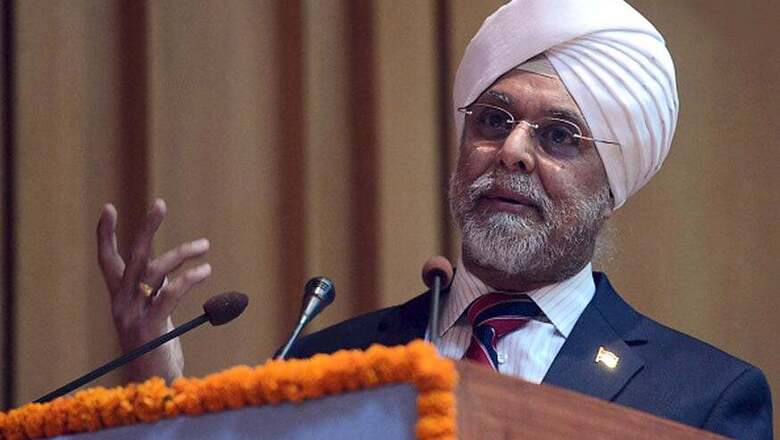
views
New Delhi: The Supreme Court Collegium, led by the Chief Justice of India, has decided to reject the Centre's plea to review their stand on having the last word in judicial appointments.
Sources told CNN-News18 that all five senior-most judges in the Collegium have unanimously resolved to dismiss the government's last-ditch attempt to get a substantive say in appointment of judges in the Supreme Court and high courts.
"It has been decided that the Collegium won't let go of its authority to reserve the final word... it is non-negotiable and pertains directly to the independence of judiciary," said a source, privy to the minutes of the Collegium meeting.
In a meeting held recently, judges were of the view that the Collegium has in March sent its "final" version of the Memorandum of Procedure (MoP) to the government and this draft required no further changes.
A decision was taken to convey to the government, through the Secretary General of the Court, that the Collegium has felt no need to reconsider and revise its stand on the latest draft of the MoP, which was sent in March this year.
Justices J Chelameswar and Ranjan Gogoi were also in agreement with this view.
A judgment in July by these two judges was lapped-up by the government as an opportunity to seek a review of the third and the "final" draft of the MoP, which guides all future appointments of judges after being notified.
Last month, as the top court released its order on sentencing former Calcutta High Court judge CS Karnan to six months in jail under contempt charge, Justices Chelameswar and Gogoi authored a separate concurring verdict, specifically calling for a more objective system of judicial appointments in India.
Their verdict emphasised that judges in the Supreme Court and high courts should be appointed on the basis of efficiency and integrity, and by employing appropriate standards.
All appointments are currently made on the basis of recommendations made by the Collegium, which reserves the last word on appointment even though the government may have some objections.
This was sought to be changed by the government through the National Judicial Appointments Commission (NJAC), in which the Union Law Minister and two 'eminent' persons were supposed to be equal participants in the process of selection of judges. But the Supreme Court declared the NJAC to be "unconstitutional", and said that a new MoP with some suitable changes to bring more transparency in the existing system would be enough.
Incidentally, Justice Chelameswar was the lone dissenting judge on this five-judge bench who had favoured a completely new mechanism of judicial appointments.
The process of finalising the new MoP began after the December 2016 judgment and as many as three drafts were exchanged between the Collegium and the government in their bid to reach common ground.
In the "final" draft sent by the Collegium in March, the judges dismissed all relevant stipulations by the government through which the executive was hopeful of getting a say in judicial appointments.
Most importantly, the Collegium discarded the view that the government could have the final word on appointment of a judge when such an appointment could put in peril the “national security”.
Even though the Collegium agreed to retain the “national security” clause in the MoP, it kept to itself the right to reiterate a name for appointment despite the government’s objection after which the appointment must go through.
A note, sent along with the draft MoP to the Union Law Ministry, further conveyed it unequivocally that no room for further negotiation was left as far as contentious clauses were concerned and that it was now for the government to take a call.
Wary of being perceived as an adversary of the highest judiciary, the Prime Minister's Office (PMO) then asked the Law Ministry to hold its hands.
PK Mishra, Additional Principal Secretary to Prime Minister Narendra Modi, was entrusted with the responsibility of coming up with an acceptable formula for the government and the judiciary but things failed to move ever since. According to sources, it was subsequently decided to wait till the term of current CJI JS Khehar to get over on August 27, following which the composition of the Collegium would change.
When the judgment by Justices Chelameswar and Gogoi came, the Law Ministry saw this as opportunity to reassert their views on contentious clauses in the MoP.


















Comments
0 comment